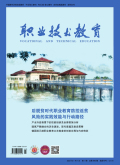职业技术教育2024,Vol.45Issue(15):54-60,7.
是什么阻碍了高职院校教师产教融合能力的发展?
What Hinders the Development of Higher Vocational College Teachers' Ability to Integrate Industry and Education?
摘要
Abstract
The industry-education integration is the soul and main line of higher vocational education,and teachers are the important subjects of deepening the integration.This study conducts a qualitative analysis on the text of in-depth interviews with 30 teachers in higher vocational colleges,and finds that four factors,including behavioral agent,industrial environment,material basis and policy support,are main factors affecting the development of teachers'ability to integrate industry and education.Based on the Ecosystem Theory,this paper constructs a framework of influencing factors that hinder the development of teachers'ability from four aspects:microsystem,mesosystem,exosystem,and macrosystem.From the aspects of building a team community of industry-education integration,improving the teacher specialty development system,opening up information and resource channels,and improving policy and system guarantees,suggestions are put forward to improve the ability of higher vocational college teachers to integrate industry and education.关键词
高职院校教师/产教融合能力/影响因素Key words
higher vocational college teachers/ability to integrate industry and education/influence factors分类
社会科学引用本文复制引用
王姝力,冯旭芳..是什么阻碍了高职院校教师产教融合能力的发展?[J].职业技术教育,2024,45(15):54-60,7.基金项目
2022年浙江省中华职业教育科研项目"高职院校教师校企合作能力结构模型构建与提升策略研究"(ZJCV2022B07) (ZJCV2022B07)
2023年度浙江省哲学社会科学规划课题"共同富裕下浙江省普惠性职业技能培训体系的构建策略与实施路径"(23NDJC370YB),主持人:冯旭芳 (23NDJC370YB)

